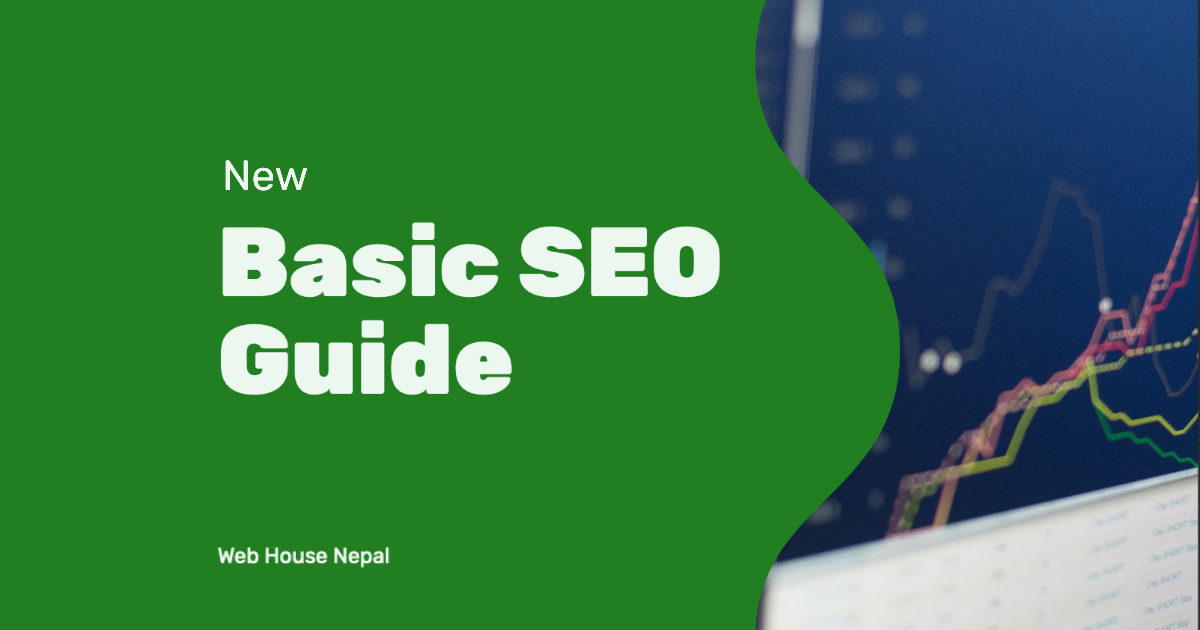Home / Blogs / Basic Search Engine Optimization Guide | SEO Basics to Boost Organic Traffic

If you are thinking of growing rank of your website on search engines like Google, Bing this is an essential guide for you. This is a basic Search Engine Optimization Guide.
This SEO guide might be fruitful for all the SEO lovers you are the website owner, manager or SEO guy. It does not matter if you are a non-technical person; this article will help you know your website optimization status and explain things you need to maintain or look after for better website performance.
In today's digital age, having a strong online presence is crucial for businesses and individuals. Search Engine Optimization (SEO) is vital in increasing visibility and driving organic traffic to your website. In this comprehensive guide, we'll delve into the critical aspects of SEO and provide practical tips and strategies to enhance your online presence.
To do Search Engine Optimization, you need to know basically what SEO is and why you need it. Similarly, what are your targeted keywords and competitors and more..
Understanding SEO: SEO optimizes your website and its content to improve its visibility on search engine result pages (SERPs). Search engines like Google use complex algorithms to determine the relevance and ranking of web pages. By aligning your website with these algorithms, you can increase your chances of appearing higher in search results.
Keyword Research: Keyword research is the foundation of any successful SEO strategy. It involves identifying the keywords and phrases your target audience will likely use when searching for products or services related to your business. Use keyword research tools like Google Keyword Planner, SEMrush, or Ahrefs to identify high-volume and relevant keywords. Incorporate these keywords into your website's content, including titles, headings, meta descriptions, and body text.

Mainly SEO Experts divided SEO into the following parts to make it easy to understand and see it: 1: Technical SEO (which is done with website code) 2: On-page SEO (which is done on the website) 3: Off-page SEO(Which done outside of Website)
This is a process of ensuring your website is crawlable and indexable by search engines. Technical SEO focuses on optimising the technical aspects of your website to enhance its visibility and user experience.
Key areas to consider include:
Website speed: Optimize your website's loading time to provide a better user experience and improve search rankings.
Mobile Optimisation: Ensure your website is mobile-friendly, as mobile searches dominate the online landscape.
Site structure: Create a logical and easy-to-navigate site structure that helps search engines understand and index your content effectively.
XML sitemaps: Generate XML sitemaps to help search engines crawl and index your web pages efficiently.
: You can generate your sitemap from here:
User Experience (UX): A positive user experience is critical for SEO and user engagement. Search engines prioritise websites that provide a seamless and satisfying experience for visitors. Consider the following UX factors:
Responsive design: Ensure your website is optimised for different devices and screen sizes.
Clear navigation: Make it easy for users to find the information they're looking for by organizing your content and navigation menu.
Fast and intuitive user interface: Create a visually appealing website with intuitive user interface elements to enhance user satisfaction.
On-page optimization focuses on optimizing individual web pages to improve their visibility.
Key elements include:
Title tags: Create unique and compelling title tags for each page, incorporating relevant keywords.
Meta descriptions: Write concise and informative meta descriptions that entice users to click through to your website.
Heading tags: Use H1, H2, and H3 tags to structure your content and make it more readable for both users and search engines.
URL structure: Create clean and user-friendly URLs that include relevant keywords.
Quality Content: Content is king in the world of SEO. High-quality, unique, and engaging content not only attracts visitors but also encourages them to spend more time on your website. When creating content, consider the following:
Use a mix of text, images, and videos to make your content more engaging.
Optimize your content for readability by using short paragraphs, bullet points, and subheadings.
Incorporate relevant keywords naturally into your content, but avoid keyword stuffing.
Regularly update and refresh your content to maintain its relevance.

Off-page SEO refers to your activities outside your website to improve its ranking in search engines. Some of the most common off-page SEO activities include: This is building links to your website from other high-quality websites. This helps to improve your website's authority and ranking in search results.
Consider the following techniques:
Link building: This is the process of linking other websites to yours. High-quality website links can help improve your website's authority and ranking in search engines.
Guest blogging: Contribute high-quality content to authoritative websites in your niche, including a link to your website.
Social media marketing: Promoting your website and social media content can help increase its visibility and reach. This can lead to more traffic to your website, which can, in turn, improve its ranking in search engines.
Brand mentions: When other websites or people mention your brand or website name, it can help to improve its visibility and authority. This can also lead to more traffic to your website.
Influencer outreach: Collaborate with influencers or industry experts to secure backlinks and increase brand visibility.
Implementing effective SEO strategies is essential for boosting your online presence and attracting organic traffic to your website. By understanding the fundamentals of SEO, conducting thorough keyword research, optimizing your content, building quality backlinks, and ensuring a positive user experience, you can enhance your search engine rankings and stay ahead of the competition. Remember, SEO is an ongoing process, so regularly monitor and adapt your strategies to align with search engine algorithm updates and evolving user behaviors.